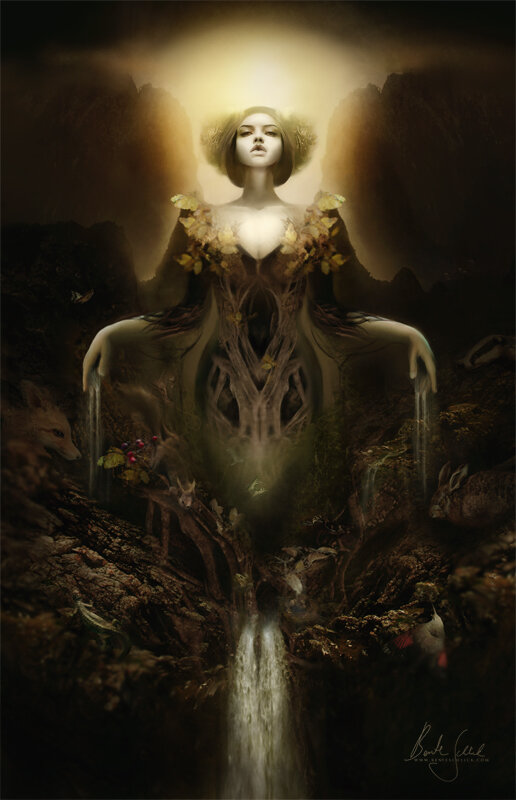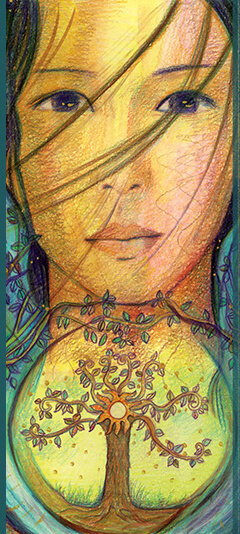Midweek Writer-Rummage: The Women of 'Moon Goddess'
Another thing that made the ‘world-building’ easy for this story is, unlike ‘The Cursed Gift’, the magic that features in ‘Moon Goddess’ isn’t overt. I wanted ‘otherworldly’ happenings to flow naturally, as if they were part of the world, without needing any conjuring. I wanted the story to stand on its own, without requiring magic to carry it.
So I didn’t have to spend time thinking about answers to questions like:
Where does magic come from?
How long does it take to become a magic-user?
Is there a strict procedure that needs to be followed to become a magic-user?
Is magic limited to a certain race/sex?
What is the price a magic-user has to pay to wield magic?
What is needed to cast a spell?
Is it possible to lose the ability to do magic?
And many other questions …
'Gaia' ~ Bente Schlick
Obviously, any magic that is present in the story is to do with goddess magic, goddess energy. This ‘magic’ (for want of a better word) isn’t to do with potions and incantations and the like; it’s to do with remembering the wisdom of our ancestors, the connections they had with the power of the divine.
Usually, it was the women who were the oracles and the seers, the ones who guided their communities. They were also healers, practising herbalism and midwifery; the people called them ‘wise women’. In time, the term ‘wise women’ was taken over by that of ‘witch’. And the once-benign term ‘witch’ was used against women (usually) who lived outside what the authorities and society termed the ‘norm’. Negative, critical, unforgiving connotations were attached to the word. Through the acts of a handful who practised what was seen as ‘the dark arts’ – that which would cause harm to the community – they were all tarred with the same cruel brush.
'The Magic Circle' ~ John William Waterhouse
I wanted to reclaim the dignity of those women who served both, their deity and their people, and so reverted to their original name of ‘wise women’ – the keepers of the wisdom of the ancients and the teachings of their goddess. The wise women of the Moon Goddess stand strong in their personal power, aided by their deep-seated confidence in knowing they are an essential part of life, that they are needed; they know they matter.
‘Gaia’ ~ Toni Carmine Salerno
As the book is titled ‘Moon Goddess’, and I’ve been talking about the divine feminine, I want to take a moment to explain that I’m not all about the feminine to the exclusion of the masculine. I believe that we all have aspects of both in us, the feminine and the masculine, whether we’re man or woman; it doesn’t make sense to honour only the one as you can’t have one without the other.
As I said in the book: ‘Those who believed … believed in both, a god and a goddess; one was as strong as the other and neither could exist without the other.’



